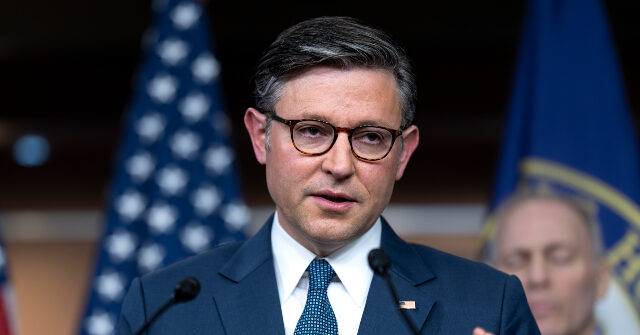During a recent interview on Fox News Channel’s “Special Report,” House Speaker Rep. Mike Johnson (R-LA) discussed plans for upcoming reconciliation packages. Johnson indicated that there would likely be at least two such packages, highlighting the importance of determining the initial focus of legislative priorities, particularly regarding tax policy. He acknowledged the complexity of these processes and indicated that discussions with President-Elect Donald Trump would help clarify the sequencing of bills. By early January, a budget is expected to be finalized, which would facilitate the reconciliation process. This process is particularly crucial because it allows for budgetary legislation to pass in the Senate with a simple majority, circumventing the usual 60-vote requirement.
Johnson underscored that while tax policy is an essential element, other pressing issues like immigration must also be addressed. During the interview, he outlined that the border crisis resonates strongly with constituents, making immigration reform a top priority. He indicated that improvements to energy policy and preventing what he described as the largest tax increase in U.S. history emerged as critical objectives to be tackled early in the legislative agenda. The potential expiration of tax cuts at the end of the year is a significant concern that legislators aim to prevent through timely legislative actions.
Host Bret Baier further queried Johnson on how immigration reform might be prioritized within these packages. To this, Johnson agreed, asserting that border security is paramount, aligning with the concerns voiced by the American public. This acknowledgment reflects a comprehensive approach to legislative priorities where immigration policies are placed on the same level as crucial economic strategies. Johnson’s remarks suggest that a balance between immediate legislative actions and long-term goals would be central to the Republican agenda moving forward.
Additionally, Johnson mentioned an intention to tackle the “deep state,” referring to a belief held by many in conservative circles that there is a bureaucratic establishment working against the interests of regular citizens. He linked this initiative to the broader objectives of the Republican Party’s forthcoming legislative proposals, marking it as a significant aspect of their efforts in the upcoming term. The referenced “DOGE” effort seems to be part of a series of programs or initiatives aimed at overhauling parts of the federal government perceived as unresponsive or inefficient.
Overall, the discussion highlights a strategic approach to governance where immediate issues such as border security and tax reform are placed at the forefront of the legislative agenda. Johnson’s commitment to detailed planning and collaboration with key figures like President-Elect Trump suggests an organized method to address various pressing issues systematically. This reflects an understanding that policymaking in a contentious political environment requires careful prioritization and timing to successfully pass legislation that aligns with Republican values and goals.
In summary, Johnson’s interview outlines a multi-pronged legislative strategy that emphasizes immigration reform, economic stability through tax policies, and addressing concerns about government effectiveness. With the upcoming budgetary discussions set for early January, Johnson’s remarks reveal his commitment to navigating through complex legislative waters while prioritizing the concerns and needs of his constituents, setting the groundwork for a potentially transformative legislative session.

